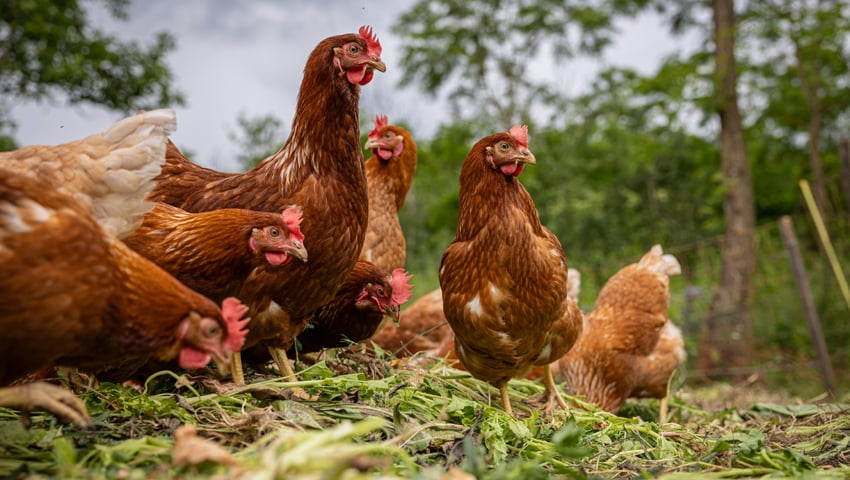The latest Business Benchmark on Farm Animal Welfare (BBFAW) reveals steady progress on farm animal welfare across the global food industry.
A leading group of companies demonstrate that humane standards of farm animal welfare, such as providing animals with more space or using best practice methods of slaughter, is integral to their business strategy. There are concerns however that a significant block of large food companies (79%), including household names like Nestlé and McDonalds remain in ‘Tiers 5 and 6’ – the bottom two tiers – for a second consecutive year.
BBFAW is the world’s leading annual assessment of the food industry’s farm animal welfare policies, practices and performance, assessing 150 global food companies across 51 criteria and 5 pillars, and ranking across six tiers.
The programme is supported by partners Compassion in World Farming and FOUR PAWS and this year’s results are the second since BBFAW introduced more stringent criteria that put a greater focus on companies’ welfare performance and approach to reducing their reliance on animal-sourced food.
There was marginal positive progress this year.
Average overall scores across all companies rose one percentage point for the second consecutive year, and 14 companies moved up a tier ranking. These include Greggs plc, who join Marks & Spencer, Premier Foods and Waitrose as the only companies reaching ‘Tier 2’ of the benchmark – meaning the companies have made farm animal welfare an integral part of their business strategy and achieved a score of between 62-80 per cent against all BBFAW criteria.
Progress for a majority of food companies is slow, however.
118 companies (79%), including Nestlé, McDonalds and Cargill, are in the bottom two tiers (Tiers 5 and 6) – meaning they provide limited or no evidence that they have policies or processes in place to manage farm animal welfare effectively. These include 22 companies (15%), who have still not published a formal overarching animal welfare policy including Avolta AG (previously Autogrill).
Nicky Amos, Executive Director of the BBFAW said, “This is the second year of results since BBFAW introduced more stringent criteria and it’s encouraging to see companies responding positively with 14 companies moving up a tier, and a further 14 improving their Impact Rating. It’s not just animals that feel the benefit of those changes – with more space to roam and fewer farm animals suffering mutilations or long-distance live transportation. Companies feel the benefits too – in terms of building their reputation with consumers and getting ahead of potential regulation.
“While the leaders are picking up the pace, clearly much more needs to be done with the large majority of food companies, including many household names, stuck in BBFAW’s bottom two tiers. Too many food companies still provide limited evidence that they are managing animal welfare effectively.
“Perhaps most striking this year is the Atlantic Gap. While the UK is the highest-performing region, practically all North American food companies are stuck in the bottom two tiers of the benchmark.”
Philip Lymbery, Global Chief Executive, Compassion in World Farming, said, “Businesses play a critical leadership role in transforming food systems for a more sustainable and animal welfare-friendly future. A key first step is eliminating cages – and we are already making progress. As the impact of current practices weighs on people, animals, and the planet, the urgency for change will only grow. Every company has the power to drive meaningful progress by shifting toward higher-welfare, cage-free products, diversifying protein portfolios with more plant-based options, and embracing regenerative farming. Together, we can build a food system that respects animals, supports the planet, and creates a better future for all.”
